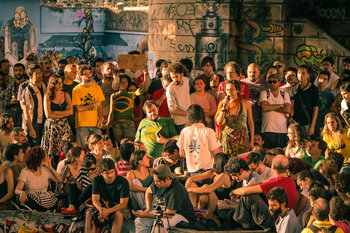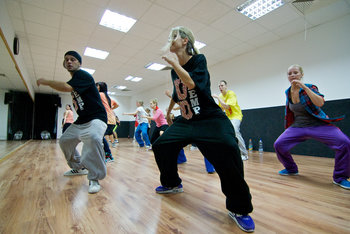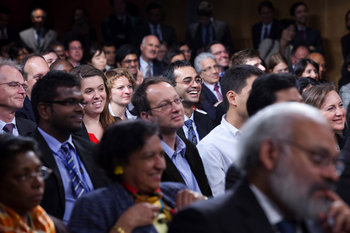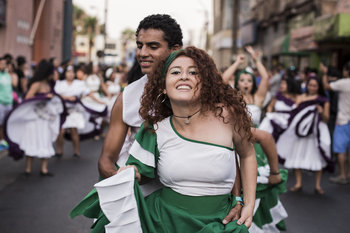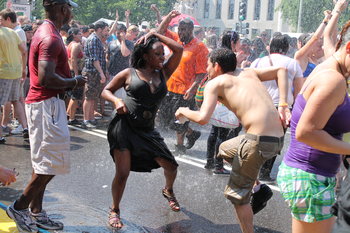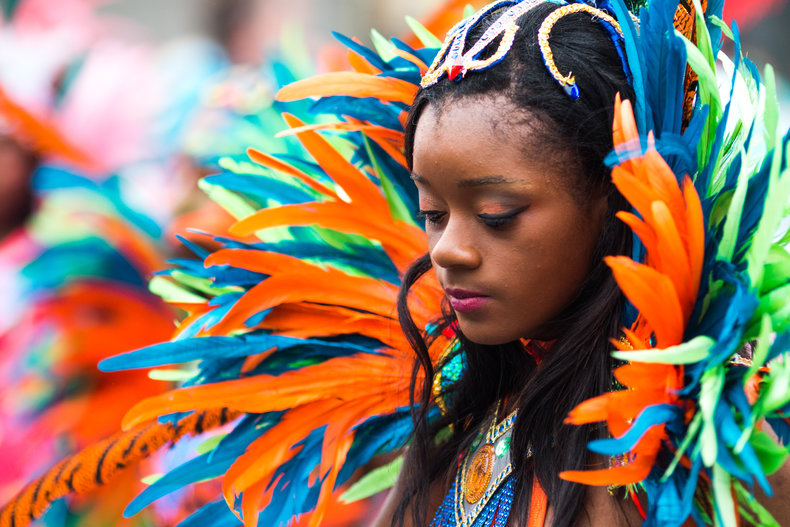
Right to Participate in Cultural Life
The right to participate in culture. This can be interpreted as an individual right to do more than simply survive. For example, ample leisure time and the freedoms required to pursue cultural activities.Public Services
The funding of public services such as schools, universities, museums, sports facilities, recreation facilities and community centers that allow people to pursue a rich and cultured life.Funding
A government role in funding culture such as art, performing art, film and cultural activities such as festivals.Heritage
The preservation of heritage and the right to access and enjoy cultural and natural heritage. For example, the right to access a beach of unusual scenic beauty such that owners of land around the beach can't exclude the public from access.Traditional Economy
The right to pursue traditional economic practices. For example, traditional agricultural practices that are protected from large firms that push governments to ban such practices in ways that benefit their sales.Freedom from Mainstream Culture
The right to sustain, preserve and participate in traditional cultures that differ from the mainstream culture of a nation and the right to pursue new culture such as a subculture that differs from the dominate culture of a place. For example, the right to use and preserve your traditional language as you see fit without harassment.Freedom from Discrimination
The right to practice a culture without discrimination. For example, the right to wear traditional clothing without facing economic or social exclusion.Artistic Freedom
The right to self-expression. This depends on basic freedoms such as freedom of thought, freedom of expression, freedom of speech and freedom of the press.Non-profits
Favorable tax treatment for cultural non-profits.Intellectual Property
Authorship rights and other intellectual property rights related to cultural expression such as fashion, literature, music, film and storytelling. This is a complex and emerging area. For example, the issue of cultural appropriation whereby firms have tried to trademark and exploit culture that has long existed.Human Rights vs Cultural Rights
Human rights are fundamental rights and freedoms owned to every human. These are the foundation of cultural rights such that the two concepts are completely intertwined. Human rights such as freedom of speech, association and movement are the basis for cultural rights. In this context, cultural rights are an extension to human rights that grant the right to continue cultural traditions and expressions that have long existed without oppression from mainstream culture, global culture or other dominant forces such as economic systems.Notes
Rights and freedoms are rarely absolute as they tend to conflict. As such, rights and freedoms need to be balanced in some reasonable way as decided by the systems of a society such as laws, regulations and courts. For example, you may have the right to enjoy traditional music but your neighbors may also have rights to enjoy their property without hearing loud music, particularly late at night. As such, some reasonable restrictions are typically placed on cultural rights to balance with other rights, freedoms and practicalities.| Overview: Cultural Rights | ||
Type | ||
Definition | The rights of an individual to participate in culture and the right of groups to sustain culture. | |
Related Concepts | ||




















